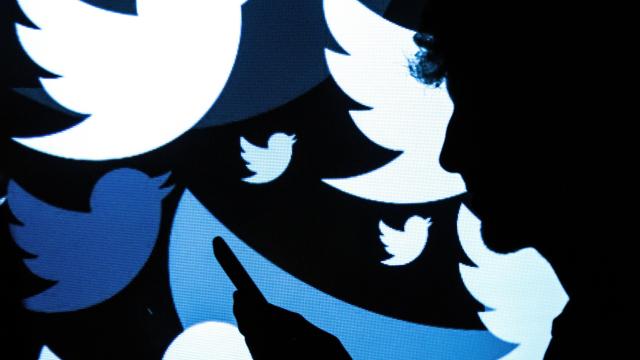Twitter ran ads from household-name brands like Disney, Microsoft, and The Telegraph newspaper alongside neo-Nazi propaganda this week. Family-friendly media conglomerates, tech giants, and legacy newspapers running ads on social media platforms may try to do so with some confidence their names won’t appear plastered next to racist, hateful imagery, but that’s far from guaranteed on Elon Musk’s new Twitter. Users tweeted screenshots of the ads beside clips an antisemitic film, and Gizmodo was able to verify that the ads were still being shown against the videos via simple searches.
How the snafu began: Verified Twitter users with blue check marks in their bios have been sharing long clips of the 2017 antisemitic film Europa: The Last Battle, which the Anti-Defamation League considers a “World War II revisionist film.” It hails from a vile genre of film that blames Jewish people for causing the war and is sometimes used as a recruiting tool among neo-Nazi groups, according to the ADL. Twitter, prior to Musk’s ownership, attempted to restrict this type of neo-Nazi content, albeit with varying degrees of success. Now the social network offers verified badges to known neo-Nazi leaders like Richard Spencer in the name of free speech.
When Gizmodo entered variations of the film’s title in the Twitter search bar, we were show clips from the movie, but we were also shown advertisements for online video games, Barron’s newspaper, and the Telegraph. Other Twitter users searching the title saw ads from Disney, Microsoft, the NBA, Freddie Mac, Harper Collins, Adobe, Colonial Penn Life Insurance, and even a legal nonprofit, the Public Rights Project. None of these brands immediately responded to Gizmodo’s requests for comment. Twitter sent us a poop emoji when we reached out.
Here’s @Microsoft, @Adobe, @Disney, @HarperCollins just to name a few. pic.twitter.com/bvZbf4N9VR
— Alejandra Caraballo 🏳️🌈🏳️⚧️🇵🇷 (@Esqueer_) June 16, 2023
Twitter has shifted its definition of restricted hate speech many times; its enforcement of those rules has likewise varied. Musk’s multiple rounds of layoffs gutting Twitter’s trust and safety team as well as its advertising team have left brand safety on the social network in a fragile state. In this case, the neo-Nazi video content posted appears to violate Twitter’s own rules against “media depicting hateful imagery.” Then again, the company did just part ways with its second trust and safety head in less than a year after she placed restrictions on posts containing clips from an aggressively transphobic film. Bottom line — In June 2023, only the Chief Twit really knows what Twitter’s actual rules are.
Twitter can’t afford to cause brands even more headaches
Easily avoidable controversies like running ads against neo-Nazi content could make brands even more uncomfortable placing ads on the social network, which is the last thing Twitter needs. Data shared with CNN earlier this year by SensorTower shows Twitter has just 625 of the top 1,000 advertisers it had prior to Musk’s takeover in September. That sudden mass evacuation of brands has reportedly resulted in a 60 per cent decline in Twitter’s monthly revenue from advertisers between October 2022 and the end of January.
In some cases, brand dissatisfaction doesn’t even stem from content on Twitter, but rather from its owner’s own foot-in-mouth personality. Emails leaked by Semafor earlier this year showed top executives from McDonald’s, Colgate-Palmolive, and the Albertsons grocery chain reeling over potential brand safety issues caused by Musk’s relentless, occasionally racist shitposting in the name of “free speech.”
“For many communities, his willingness to leverage success and personal financial resources to further an agenda under the guise of freedom of speech is perpetuating racism resulting [in] direct threats to their communities and a potential for brand safety compromise we should all be concerned about,” McDonald’s Chief Marketing and Customer Experience Officer Tariq Hassan wrote. “Further, all of us who lead our brand’s investments across platforms were required to navigate a situation post-acquisition that objectively can only be characterised as ranging from chaos to moments of irresponsibility.”
